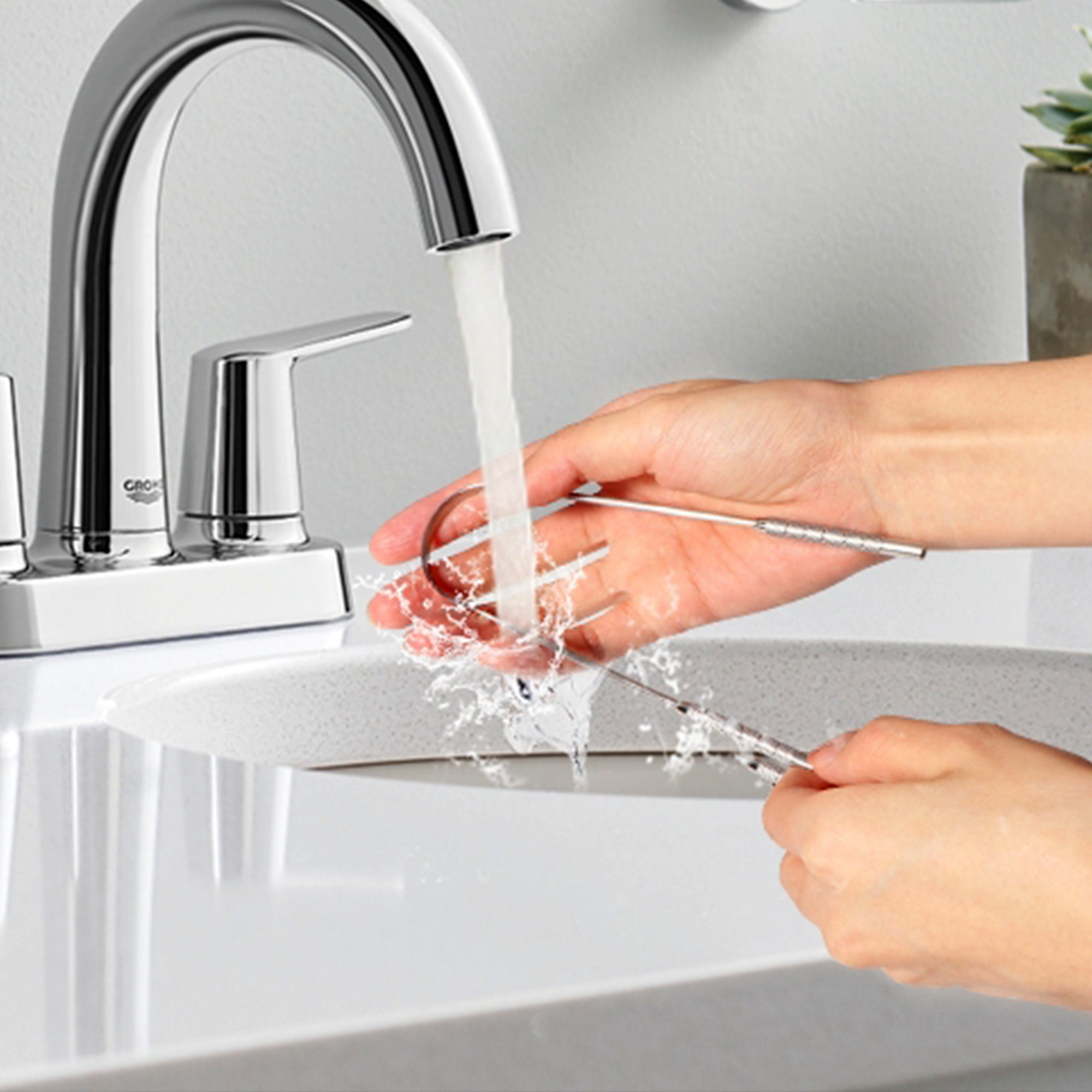Bad breath, or halitosis, is a common issue that can affect anyone. It can make social interactions uncomfortable, damage self-esteem, and even hinder professional opportunities. However, with the right approach, bad breath can be managed effectively, ensuring you always present a fresh and confident smile. In this guide, we'll explore five proven strategies to fight bad breath, each backed by science and easy to incorporate into your daily routine.

Maintain Optimal Oral Hygiene
Good oral hygiene is the cornerstone of fresh breath. The mouth is home to millions of bacteria, many of which are beneficial. However, when food particles are left in the mouth, these bacteria break them down, producing sulphur compounds that can lead to unpleasant odors.
Brushing and Flossing
Brushing your teeth at least twice a day and flossing daily is essential. Make sure to brush your tongue as well, especially the back, where bacteria tend to accumulate. Using a soft-bristled toothbrush and fluoride toothpaste helps remove plaque and food debris that can cause bad breath. Don't forget to replace your toothbrush every three to four months or after recovering from an illness.
Mouthwash
A mouthwash can be an effective addition to your oral care routine. Choose a mouthwash that not only masks bad breath but also kills bacteria and neutralizes odors. Antimicrobial mouthwashes with ingredients like chlorhexidine or essential oils can help reduce bacterial growth, while fluoride rinses can strengthen teeth and prevent decay.
Visit Your Dentist Regularly
Regular dental check-ups are vital for maintaining oral health and preventing bad breath. Your dentist can spot issues like gum disease, cavities, or dry mouth, which may contribute to bad breath. Professional cleanings remove tartar buildup that brushing and flossing alone can't eliminate.
Tongue Scraping
A tongue scraper helps with bad breath by removing bacteria, food particles, and dead cells that accumulate on the tongue, particularly at the back where a toothbrush may not reach effectively. These substances can harbor sulphur compounds, which are often the cause of bad breath. Regular use of a tongue scraper reduces the bacteria and debris, leading to fresher breath and overall better oral hygiene. It's a simple yet effective tool for maintaining oral cleanliness beyond just brushing and flossing.

Watch Your Diet
The foods you eat play a significant role in your breath quality. Certain foods can cause bad breath either by leaving residue in your mouth or by being absorbed into your bloodstream and exhaled through your lungs.
Avoid Pungent Foods
Garlic, onions, and spicy foods are notorious for causing bad breath. These foods contain sulfur compounds that are absorbed into your bloodstream and released through your lungs, leading to persistent odors. While you don't need to eliminate these foods entirely, consider reducing your intake, especially before social or professional events.
Eat Crunchy Fruits and Vegetables
Fruits and vegetables like apples, carrots, and celery can help fight bad breath. Their natural crunchiness stimulates saliva production and helps clean your teeth by removing food particles and plaque. Additionally, these foods are high in fiber and water, which can help keep your mouth hydrated and reduce the risk of bad breath.
Include Probiotic-Rich Foods
Probiotics, found in foods like yogurt, kefir, and sauerkraut, can help balance the bacteria in your mouth and gut. A healthy balance of bacteria can reduce the likelihood of bad breath by preventing the overgrowth of odor-causing bacteria. Consider incorporating more probiotic-rich foods into your diet for fresher breath and overall better digestive health.

Address Underlying Health Issues
Sometimes, bad breath is a symptom of an underlying health condition. Identifying and treating these conditions can help eliminate bad breath and improve your overall health.
Gum Disease
Gum disease, or periodontal disease, is a leading cause of bad breath. It occurs when plaque and tartar build up on the teeth, leading to inflammation and infection of the gums. This infection can cause chronic bad breath, as well as more serious health issues if left untreated. Regular dental visits, proper brushing, and flossing can help prevent gum disease and its associated bad breath.
Dry Mouth
Dry mouth, or xerostomia, occurs when your salivary glands don't produce enough saliva. This condition can be caused by factors like medication, aging, or certain health conditions. Without enough saliva, your mouth can't effectively cleanse itself, leading to a buildup of bacteria and food particles that cause bad breath. If you suffer from dry mouth, talk to your dentist or doctor about treatments or products that can help increase saliva production.
Sinus Infections and Respiratory Conditions
Sinus infections, postnasal drip, and other respiratory conditions can contribute to bad breath. Mucus from these conditions can accumulate in the throat and mouth, providing a breeding ground for bacteria. Treating the underlying condition, whether through medication or other therapies, can help eliminate bad breath.
Systemic Diseases
Certain systemic diseases, such as diabetes, kidney disease, and liver disease, can cause bad breath. For example, diabetes can lead to a condition called diabetic ketoacidosis, which produces a fruity or acetone-like odor on the breath. If you suspect a systemic disease may be contributing to your bad breath, it's important to consult a healthcare professional for diagnosis and treatment.

Use Natural Remedies
In addition to traditional oral hygiene practices, several natural remedies can help combat bad breath. These remedies are easy to incorporate into your routine and can provide an extra layer of protection against unpleasant odors.
Herbs and Spices
Certain herbs and spices, such as parsley, mint, and cloves, have natural antibacterial properties and can help freshen your breath. Chewing on fresh parsley or mint leaves can neutralize odors, while cloves can inhibit the growth of odor-causing bacteria. You can also brew a tea with these herbs or add them to your meals for an extra boost of freshness.
Oil Pulling
Oil pulling is an ancient Ayurvedic practice that involves swishing oil, typically coconut or sesame oil, around your mouth for 10 to 20 minutes. This practice is believed to reduce bacteria and toxins in the mouth, leading to fresher breath and improved oral health. While scientific evidence on the effectiveness of oil pulling is limited, many people report positive results. To try oil pulling, swish a tablespoon of oil in your mouth before brushing, then spit it out and rinse with water.
Baking Soda
Baking soda, or sodium bicarbonate, is a natural deodorizer that can help neutralize bad breath. You can use baking soda as a toothpaste by dipping your toothbrush in it and brushing your teeth, or mix it with water to create a mouth rinse. Baking soda can help balance the pH in your mouth, making it less hospitable for odor-causing bacteria.
Apple Cider Vinegar
Apple cider vinegar is another natural remedy that may help combat bad breath. Its acidic nature can help neutralize odors and kill bacteria. To use apple cider vinegar, mix a tablespoon with a glass of water and swish it around your mouth for 30 seconds before spitting it out. Be sure to rinse your mouth with plain water afterward, as the acidity of apple cider vinegar can erode tooth enamel over time.

How to Choose the Perfect Toothpaste
With so many toothpaste options available, choosing the right one can be a bit overwhelming. Whether you're focused on whitening, cavity prevention, or sensitivity relief, here's a quick guide to help you find the perfect toothpaste for your needs.
Identify Your Oral Health Needs
Start by understanding what your teeth and gums need:
- Cavity Prevention: Look for a fluoride toothpaste to strengthen enamel and prevent decay.
- Sensitive Teeth: Opt for toothpaste specifically formulated for sensitivity, often containing potassium nitrate or stannous fluoride.
- Whitening: For a brighter smile, choose a toothpaste with gentle abrasives to remove surface stains.
- Gum Health: Consider toothpaste with antibacterial ingredients to help reduce plaque and gingivitis.
Check for Fluoride
Fluoride is a must-have for most people as it strengthens enamel and helps prevent cavities. Ensure your toothpaste contains fluoride unless your dentist advises otherwise.
Consider Flavor and Texture
Pick a flavor you enjoy—whether it’s minty, fruity, or herbal—to make brushing more pleasant. The right texture and flavor can make a big difference in maintaining a consistent brushing routine.
Choose nHA Toothpaste
NHA Toothpaste is a type of toothpaste containing Nano-hydroxyapatite (NHA) as its active ingredient. Hydroxyapatite is a natural mineral from of calcium apatite which is a primary component of human teeth and bones. Nano-hydroxyapatite means hydroxyapatite particles that allow better penetration with the teeth enamel.
Benefits of nHA Toothpaste:
Enamel Repair and Strengthening: nHA particles can fill in microscopic cracks and pores in tooth enamel, helping to repair and strengthen it. This can prevent cavities and sensitivity.
Reduced Sensitivity: By filling in the tiny tubules in tooth enamel, nHA can help alleviate sensitivity to hot, cold, sweet, or acidic foods and drinks.
Natural Approach: Many people prefer nHA toothpaste as a natural alternative to fluoride, especially for children or those with concerns about fluoride exposure.
Whitening Effects: Some nHA toothpastes can help remove surface stains, leading to a brighter smile.
Gentle on Teeth and Gums: nHA is generally considered gentle on both teeth and gums, making it suitable for people with sensitive mouths.
Conclusion
Bad breath can be a persistent and frustrating issue, but it doesn't have to be a permanent one. By following these five strategies—maintaining optimal oral hygiene, staying hydrated, watching your diet, addressing underlying health issues, and using natural remedies—you can effectively combat bad breath and enjoy a fresh, confident smile. Remember, consistency is key. Incorporate these practices into your daily routine, and over time, you'll notice a significant improvement in your breath and overall oral health.
Taking care of your mouth not only ensures fresh breath but also plays a vital role in your overall well-being. A healthy mouth is a reflection of a healthy body, and by prioritizing your oral health, you're investing in a happier, more confident you. So, take the first step today—because a fresh smile is always in style.




Leave a comment
This site is protected by hCaptcha and the hCaptcha Privacy Policy and Terms of Service apply.